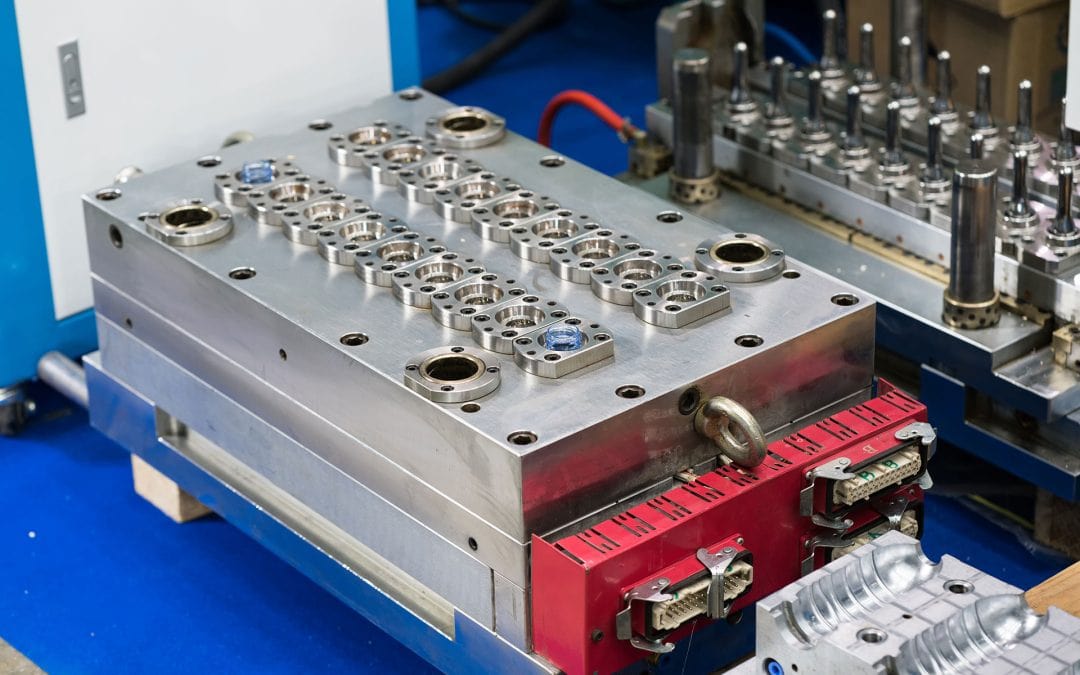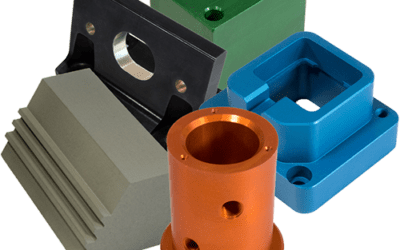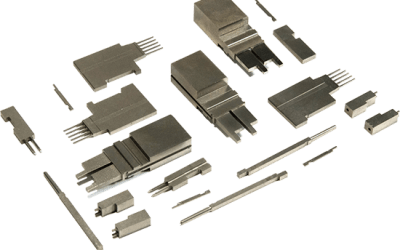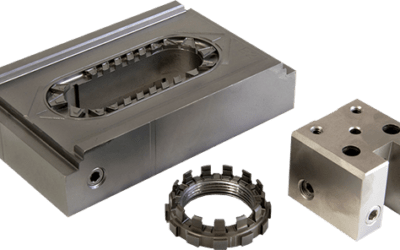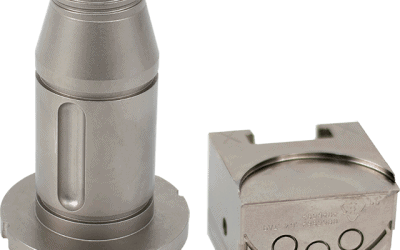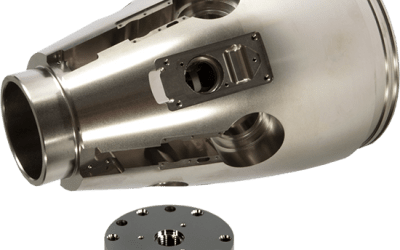The Benefits of Nickel Teflon Coatings
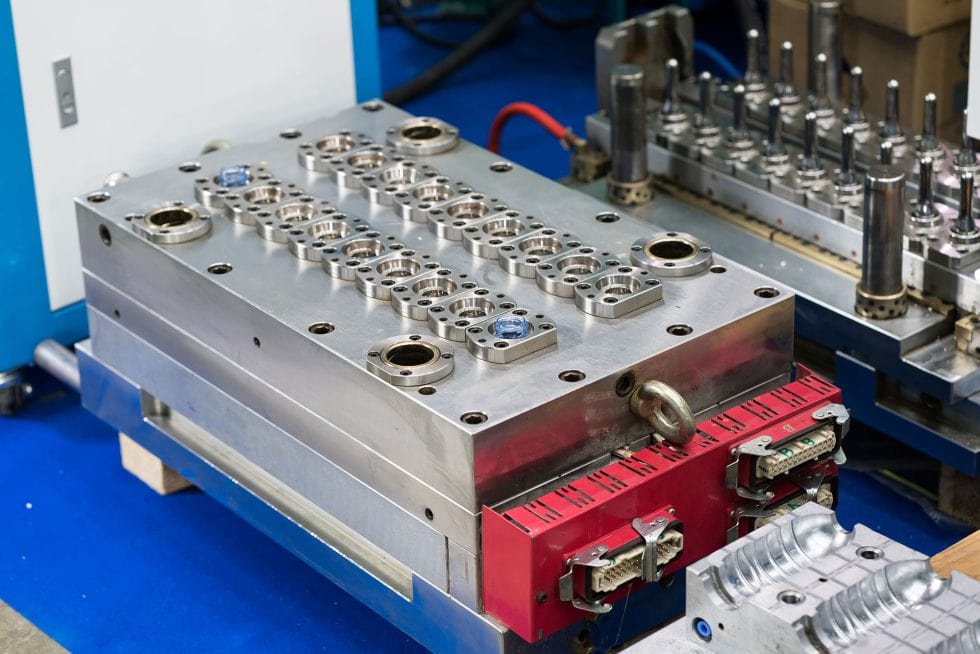
Nickel Teflon coatings are excellent for a wide range of molding applications offering plating that comes with a unique set of different benefits and advantages. As an electroless nickel coating, customers can expect a uniform coat applied with a process that does not use electricity. Plus, the coating thickness can be controlled within precise specifications.
While there is no one-size-fits-all solution to finding the best coating for a mold application, nickel Teflon coatings tend to stand out in the aerospace, defense, and oil & gas industries. At PFI, we offer a proprietary nickel Teflon coating called Lubricoat, which comes with a wide array of advantages. Explore the benefits of our Lubricoat applications and how they can enhance different kinds of molds.
All-In-One Convenience
With Lubricoat, molds can be coated with an all-in-one solution that offers multiple benefits like lubricity, hardness, and corrosion resistance. Being an electroless process, Lubricoat is applied uniformly across the entire mold, and you can customize exactly how thick the coating is with limits from 0.00025 inches to 0.003 inches.
Enhanced Hardness and Corrosion Resistance
Among the most notable advantages of nickel Teflon coatings are its enhanced hardness and corrosion resistance. By implementing these properties into your mold, you can improve performance, especially when making components that will be used in high-stress environments. With a low coefficient of friction and a breakdown temperature of 650°F, molds coated with nickel Teflon tend to last much longer compared to other alternatives.
Specifically, the friction coefficient is approximately 0.08 while the hardness is 48-52 on the Rockwell scale. Additionally, nickel Teflon coatings can be plated on almost all traditional mold materials including the following:
- Steels
- Aluminum
- Copper
- Beryllium
- Brass
Lubricoat’s Enhanced Lubricity
Unlike some other nickel Teflon coatings, Lubricoat implements polymers and durable phosphorus into its chemical makeup to offer better lubricity. This can be especially important for the aerospace and defense industry, though lubricity will help just about every mold perform better. Lubricoat specifically makes it easier for the release of plastic from the mold component. Couple this lubricity with the ability for Lubricoat to be chemically removed, and you have a coating that is suitable for a massive range of applications.
Eliminating the Need for Mold Release Sprays
With Lubricoat applied appropriately, the need for mold-release sprays can be eliminated from your production process entirely. This alone offers multiple benefits, as it means you do not have to incorporate release spray into your budget, and you can improve the efficiency of your overall process.
Versatility
Lubricoat can be applied to compatible molds to meet a wide range of different specifications. Its unique chemical properties allow it to be applied with a flexible thickness that can be as precise as 0.00025 inches.
Additionally, its hardness typically ranges from 48-52 Rc as plated, but that can be altered. With PFI’s heat treatment, Lubricoat’s hardness can be increased to 65 Rc. While the plated hardness is often enough, the aerospace and defense industries require many components and parts crafted from molds that need to be especially long-lasting to keep production efficient. By taking advantage of this coating’s versatility, your business may find the potential to boost efficiency and reduce costs.
Chemical Process Application and Removal
In addition to the performative benefits of Lubricoat, businesses can also benefit from the chemical process by which it is applied. As an electroless plating solution, PFI applies Lubricoat uniformly using a chemical bath process that negates the need for expensive fixtures and jigs required in electroplating.
Chemical Bath Makeup
- Nickel – 64-72%
- Phosphorous – 9-10%
- Teflon – 18-24%
- Lubricity-inducing Polymers – 1-2%
If you ever need to remove the coating from the mold in the future, we have made that easy as well. Its chemical composition and application process make the mold resistant to the exposure it would experience in regular use, but the coating can still be removed easily under the right circumstances. While you may be focused on getting the right coating now, it’s helpful to plan for the future too, and you may not need this kind of coating forever.
Applications of Lubricoat
Nickel Teflon coatings are typically best used for the following applications that would otherwise require mold-release sprays.
- Rubber molds
- Injection molds
- Thermoplastic molds
- Industrial sealing
Lubricoat also tends to be a suitable coating for the following kinds of materials.
- Acrylonitrile styrene
- Ethylene-vinyl acetate
- High-density polyethylene
- Renewable polyethylene (Biopolyethylene)
- Acrylic (Methacrylic acid methyl ester)
- Polyethylene terephthalate
- Polyether ether ketone
- Polyurethane
- Liquid silicone rubber
- Epoxy-based resins
How to Know if You Need Nickel Teflon Coatings
Given the range of coatings available, it’s important to know which coating would work best for your unique needs. The best tool is considering which problem you are specifically trying to prevent with the coating. Some of the most prominent problems to prepare for include the following.
- Flashing
- Wear and abrasion
- Contact with water
- Porosity and seepage
- Condensation
- Contact with acidic substances
By identifying the most influential source of damage to the mold, it is easier to prepare and prevent that damage from occurring. Doing so will increase the overall lifespan and functionality of the mold.
Regulations and PFAS Content
Nickel Teflon coatings and other kinds of coatings are becoming highly regulated, especially when it comes to PFAS content. PFAS or poly-fluoroalkyl substances are manufactured chemicals that have been widely used since the 1940s, but they are associated with a wide range of health risks. At PFI, our chemical supplier has already removed all PFAS content from their chemicals, so our services are free of these harmful chemicals abiding by new regulations regarding PFAS content. Note that our nickel Teflon coatings are additionally free of perfluorooctane sulfonate (PFOS) and perfluorooctanoic acid (PFOA).
Extending the Life of Moldings
Nickel teflon coatings can be applied to molds both new and old. When applied to a well-worn old mold, however, it can do much to extend its lifespan. Getting a mold you already have coated can be significantly more affordable when compared to completely replacing a mold. At PFI, we have extensive experience applying this coating to older molds that have seen prolonged use in oil & gas, automotive, and aerospace scenarios. With Lubricoat in place, molds in these industries will be better equipped to handle the wear, heat, and corrosion so common in these sectors.
Request a Quote for Nickel Teflon Coatings
PFI’s proprietary Lubricoat coating offers our customers reliable and long-lasting protection for molds used in the aerospace, automotive, and oil & gas industries thanks to its array of notable benefits. Our nickel Teflon coating is an affordable solution that can be applied with a brief turnaround time guaranteed. Plus, our team will work with you to determine if Lubricoat is the right fit for your specifications or if you would benefit more from one of our other high-quality coating options. Get in touch with our team today to find the right solution for your mold.
